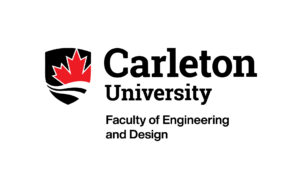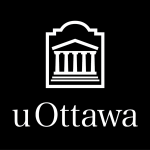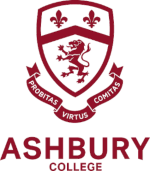The Ottawa Regional Science Fair (ORSF) is a volunteer organization which encourages students in the Ottawa-Carleton Region, from grades 7 to 12, to research, develop, and present projects in the fields of science and engineering. Students from both public and private schools in the Region are invited to enter projects in any science related topic including but not limited to the following “Challenge” topics:
• Discovery – Create new fundamental knowledge based on your curiosity by asking a question and using the techniques of scientific inquiry to develop an answer.
• Energy – Improve our use of current energy sources, enable the transition to alternative energy sources, or reduce our energy footprint.
• Environment – Reduce our impact on, improve our understanding of, and ensure the quality of water air, soil, and the diversity of living things.
• Health – Increase our understanding of the human body, or apply science and technology to improve health, control disease, or support an again population.
• Information – Enhance communication and our use of information using digital and networking technologies, or applications of new media.
• Innovation – Combine scientific principles with your creativity to develop a new material, structure, device, or system to solve a problem or improve an existing solution.
• Resources – Develop better ways to use our natural resources that provide sustainable sources of food, products, or prosperity.
During registration, participants will identify the “challenge” best addressed by their project.
Each year, approximately 300 projects are entered and judged in the junior, intermediate, senior, and special awards categories. Participation in the Fair also ensures the students’ eligibility to compete for a position on the team representing the Ottawa-Carleton Region at the subsequent national competition, the Canada Wide Science Fair (CWSF). For over 50 years, many participants have gone on to successful careers in science and technology. The calibre of entries each year is nothing short of amazing! In recent years, participants have applied for, and received, patents for inventions they have presented at the Fair.
Since its inception in 1961, the Ottawa Regional Science Fair has been conducting its fund-raising at the local level. Included in this challenging task is raising enough funds to send a Regional team to the CWSF each year. Traditionally, our students have been very successful at the national level. What started in a school gymnasium over 50 years ago has now grown into a significant annual event that showcases the considerable academic talents of our region’s youth.
The location of the Canada-Wide Science Fair rotated between several cities each year. The 11 best students selected as grand prize winners at the ORSF will be invited to the event in May. Please visit the CWSF website to see where its being held.
The judges marking rubric is the based on the Canada-Wide Science Fair marking form, however Project Reports are optional and recommended as they contribute to the overall thoroughness, scientific method and impression but will not be explicitly marked like they are for CWSF (where they are pre-submitted for marking).
Complete project setup Friday is required for judging on that day and which continues Saturday morning before students enter. The gym will be secured overnight but we are not responsible for lost items. Students can take home valuables overnight if they wish but they must complete be able to reassemble their project quicky at 9am Saturday when final judging begins.
Yes. A Media Release section is now part of the registration process.
As part of the registration process you have the option to nominate yourself to be considered for up to seven special awards. If you do not nominate yourself, your project will not be considered for any special awards. Follow the instructions during the registration process, if you do not register for special awards you cannot ask to be judged at the event.
Lunch for exhibitors is NOT PROVIDED. All students are encouraged to pack a lunch. The projects/exhibit area will be closed Friday during the 12:00-1:00 lunch hour. On Saturday the award ceremony is 12-1pm then the event ends.
There is a Tim Horton’s in the Athletics building that will be open on the Friday and Saturday of the fair, but lineups for this can be long. For greater information about where to find food on the Carleton campus, see this list of dining services.
All of the ORSF will be held at the Carleton University Raven’s Nest.
PARKING – see the campus map
Pay & display parking in lot 5 at Alumni Hall (Raven’s Nest Gym):
$3.50/hr to a max of $11/day on weekdays; $4 flate-rate on weekends.
The registration process begins at the Youth Science Canada Portal. Check out the “Important Dates” to stay up to date on deadlines, as they are subject to change. If you have any registration questions, please email the ORSF Registration member listed in the “Contact Us” section.
You don’t need a school code to register. Even for teachers, this is completely optional. A school code simply allows the school contact name, email and phone number entered on the ORSF system to be changed. If a schools wants to modify this info and require the password, please send an email to the ORSF Registration member listed in the “Contact Us” section.
Judging of projects without students present occurs between Friday between 12:00-1:00 pm and Saturday before 9am. Judges will meet with students for project presentations between 1pm and 4pm Friday and from 9am -11am . You can expect 3 to 4 judges for category/divisional judging, while the number of special awards judges depends on how many you signed up for.
Attend the ORSF as much as you can, leaving a note on the exhibit stating when you will return. There is a real possibility that the project may miss some judging and this may disqualify it from winning a divisional or special award, in particular if a student does not attend on Saturday they will not likely be considered for any grand awards including CWSF trips. However participation in the ORSF is about more than winning awards, and presenting your work to judges and the public is a great experience, as is seeing the other projects at the fair.
The registration fee can be paid via e-transfer to registration@orsf[.]ca (remove the [ ] brackets).
Early Bird Registration Fee (before Feb 15th):
- $40 per team project
- $20 per solo project
Registration Fee (after Feb 15th):
- $50 per team project
- $30 per solo project
If you have any questions about payment or the registration fee, please contact the ORSF Registration member listed in “Contact Us“.
Thank you to our sponsors!
Titanium
Platinum
Gold
Silver
Special Mentions
The Graham Family Foundation
Anonymous Donor




